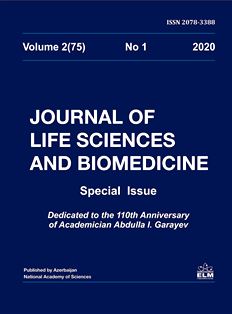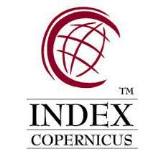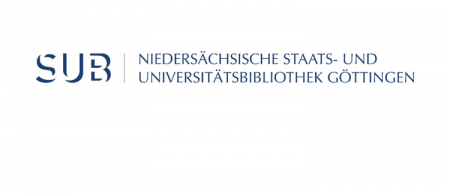
Comparative analysis of KRAS and NRAS gene mutations in colorectal cancer
Author (s): B.I. Bayramov1*, Sh.A. Mammadova2, F.A. Gahramanova2, N.Y. Bayramov2
1Genetic Resources Institute of Azerbaijan National academy of Sciences, 155 Azadlig Ave., Baku
AZ1106, Azerbaijan
2 Department of Surgical Diseases, Azerbaijan Medical University, 23 A.A.Bakikhanov Str., Baku
AZ1022, Azerbaijan
*For correspondence: bayram-bayramov-90@hotmail.com
https://doi.org/10.29228/jlsb.14
Journal of Life Sciences & Biomedicine, vol. 3(76), No 1, p. 108-115 (2021)
Received: April 06, 2021; Received in revised form: May12, 2021; Accepted: June 21, 2021
Abstract
Identifying the genetic profile of cancer by tumor biopsy has made progress in precision medicine. The study of the genetic profile of a tumor can help to choose the optimal treatment at the right time and identification of the cause of drug resistance. It is known that the biopsy is an invasive procedure, and it has some risks. That is why the development of non-invasive methods such as liquid biopsy is required. It is possible to determine circulating cancer cells (CTC) and circulating free tumor DNA (cfDNA) fragments with this technique. In the present study, KRAS and NRAS codon 12 and 13 mutations were compared in biopsy-derived DNA and liquid biopsy-derived cfDNA. The study included 26 patients with colorectal cancer. DNA extraction has been performed in Human Genetics Laboratory of the Genetic Resources Institute of ANAS, from biopsy material and plasma. Five (19.2%) mutations were detected in tumor DNA samples and 2 (7.7%) mutations in plasma cfDNA in the KRAS gene. Totally 3 missense mutations were detected in the NRAS gene. Two of these mutations (7.7%) were identified in tissue DNA samples and one of these (3.8%) in cfDNA. It was determined that the incidence of KRAS gene mutations in both tissue DNA and cfDNA samples was higher than NRAS gene mutations. Obtaining cfDNAs by liquid biopsy and particularly analyzing RAS gene family play a significant role in the early diagnosis, anti-EGFR therapy, selection of the right drugs, resistance, and the prognosis of the disease.
Keywords: Cancer, liquid biopsy, gene, cfDNT, exon
References
Bayramov N., Safiyeva A. (2019) Principles of modern approach to the treatment of benign tumors of the large intestine. Journal of Life Sciences and Biomedicine, 74 (2): 78-82.
Arnold M., Sierra M.S., Laversanne M., Soerjomataram I., Jemal A., Bray F. (2017) Global patterns and trends in colorectal cancer incidence and mortality. Gut, 66(4): 683-691.
Aune D., Chan D.S., Lau R., Vieira R., Greenwood D.C., Kampman E., Norat T. (2011) Dietary fibre, whole grains, and risk of colorectal cancer: systematic review and dose-response meta-analysis of prospective studies. BMJ, 10: 343:d6617.
Bao Q., He B., Pan Y., Tang Z., Zhang Y., Qu L., Xu Y., Zhu C., Tian F., Wang S. (2011) Genetic variation in the promoter of DNMT3B is associated with the risk of colorectal cancer. Int. J. Colorectal Dis., 26(9): 1107-1112.
Chen M., Zhao H. (2019) Next-generation sequencing in liquid biopsy: cancer screening and early detection. Hum. Genomics, 13(1): Article ID 34.
Afrăsânie V.A., Marinca M.V., Alexa-Stratulat T., Gafton B., Păduraru M., Adavidoaiei A.M., Miron L., Rusu C. (2019) KRAS, NRAS, BRAF, HER2 and microsatellite instability in metastatic colorectal cancer - practical implications for the clinician. Radiol Oncol., 53(3): 265-274.
Cheung A.H., Chow C., To K.F. (2018) Latest development of liquid biopsy. J. Thorac. Dis., 10: S1645–S1651.
Cho E., Lee J.E., Rimm E.B., Fuchs C.S., Giovannucci E.L. (2012) Alcohol consumption and the risk of colon cancer by family history of colorectal cancer. Am. J. Clin. Nutr., 95(2): 413-419.
Marrugo-Ramírez J., Mir M., Samitier J. (2018) Blood-based cancer biomarkers in liquid biopsy: A promising non-ınvasive alternative to tissue biopsy. Int. J. Mol. Sci., 19(10): 2877.
Deng L., Gui Z., Zhao L., Wang J., Shen L. (2012) Diabetes mellitus and the incidence of colorectal cancer: an updated systematic review and meta-analysis. Dig. Dis. Sci., 57(6):1576-1585.
Erve I., Greuter M.J.E., Bolhuis K., Vessies D.C.L., Leal A., Vink G.R., van den Broek D., Velculescu V.E., Punt C.J.A., Meijer G.A., Coupé V.M.H., Fijneman R.J.A. (2020) Diagnostic strategies toward clinical ımplementation of liquid biopsy RAS/BRAF circulating tumor DNA analyses in patients with metastatic colorectal cancer. J. Mol. Diagn., 22(12):1430-1437.
Hamzehzadeh L., Khadangi F., Ghayoor Karimiani E., Pasdar A., Kerachian M.A. (2018) Common KRAS and NRAS gene mutations in sporadic colorectal cancer in Northeastern Iranian patients. Curr. Probl. Cancer., 42(6): 572-581.
Larsson S.C., Wolk A. (2006) Meat consumption and risk of colorectal cancer: a meta-analysis of prospective studies. Int. J. Cancer., 119(11): 2657-2664.
Mahasneh A., Al-Shaheri F., Jamal E. (2017) Molecular biomarkers for an early diagnosis, effective treatment and prognosis of colorectal cancer: Current updates. Exp. Mol. Pathol., 102(3): 475-483.
Normanno N., Cervantes A., Ciardiello F., De Luca A., Pinto C. (2018) The liquid biopsy in the management of colorectal cancer patients: Current applications and future scenarios. Cancer Treat. Rev., 70: 1-8
Shaukat A., Kahi C.J., Burke C.A., Rabeneck L., Sauer B.G., Rex D.K. (2021) ACG Clinical guidelines: Colorectal cancer screening. Am. J. Gastroenterol., 116(3): 458-479.
Siravegna G., Bardelli A. (2014) Genotyping cell-free tumor DNA in the blood to detect residual disease and drug resistance. Genome Biol., 15: 449.
Sung H., Ferlay J., Siegel R.L., Laversanne M., Soerjomataram I., Jemal A., Bray F. (2021) Global cancer statistics 2020: GLOBOCAN estimates of incidence and mortality worldwide for 36 cancers in 185 countries. CA Cancer J. Clin., 71(3): 209-249.
Takeda K., Yamada T., Takahashi G., Iwai T., Ueda K., Kuriyama S., Koizumi M., Matsuda A., Shinji S., Ohta R., Yokoyama Y., Hotta M., Hara K., Yoshida H. (2019) Analysis of colorectal cancer-related mutations by liquid biopsy: Utility of circulating cell-free DNA and circulating tumor cells. Cancer Sci., 110(11): 3497-3509.
Therkildsen C., Bergmann T.K., Henrichsen-Schnack T., Ladelund S., Nilbert M. (2014) The predictive value of KRAS, NRAS, BRAF, PIK3CA and PTEN for anti-EGFR treatment in metastatic colorectal cancer: A systematic review and meta-analysis. Acta Oncol., 53(7): 852-864.
Thierry A.R., El Messaoudi S., Mollevi C., Raoul J.L., Guimbaud R., Pezet D., Artru P., Assenat E., Borg C., Mathonnet M., De La Fouchardière C., Bouché O., Gavoille C., Fiess C., Auzemery B., Meddeb R., Lopez-Crapez E., Sanchez C., Pastor B., Ychou M. (2017) Clinical utility of circulating DNA analysis for rapid detection of actionable mutations to select metastatic colorectal patients for anti-EGFR treatment. Ann. Oncol., 28(9): 2149-2159.
Van Cutsem E., Köhne C-H., Hitre E., Zaluski J., Chang Chien C-R., Makhson A. (2009) Cetuximab and chemotherapy as initial treatment for metastatic colorectal cancer. N. Engl. J. Med., 360(14): 1408-1417.
Van Cutsem E., Köhne C-H., Láng I., Folprecht G., Nowacki M.P., Cascinu Sl. (2011) Cetuximab plus irinotecan, fluorouracil, and leucovorin as first-line treatment for metastatic colorectal cancer: updated analysis of overall survival according to tumor KRAS and BRAF mutation status. J. Clin. Oncol. (JCO), 29(15): 2011-2019.
Vymetalkova V., Cervena K., Bartu L., Vodicka P. (2018) Circulating cell-free DNA and colorectal cancer: A systematic review. Int. J. Mol. Sci., 19(11): 3356.
Wills B., Gorse E., Lee V. (2018) Role of liquid biopsies in colorectal cancer. Curr. Probl. Cancer., 42(6): 593-600.
Yang Y.C., Wang D., Jin L., Yao H.W., Zhang J.H., Wang J., Zhao X.M., Shen C.Y., Chen W., Wang X.L., Shi R., Chen S.Y., Zhang Z.T. (2018) Circulating tumor DNA detectable in early- and late-stage colorectal cancer patients. Biosci. Rep., 38(4): BSR20180322
Zhang J., Haines C., Watson A.J.M., Hart A.R., Platt M.J., Pardoll D.M., Cosgrove S.E., Gebo K.A., Sears C.L. (2019) Oral antibiotic use and risk of colorectal cancer in the United Kingdom, 1989-2012: a matched case-control study. Gut, 68(11): 1971-1978.























